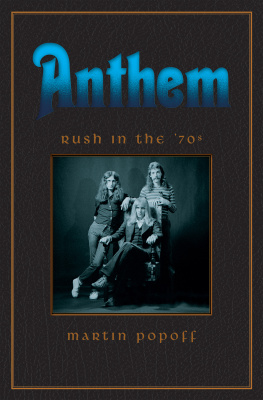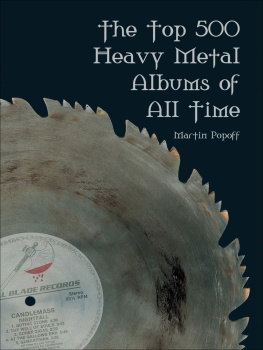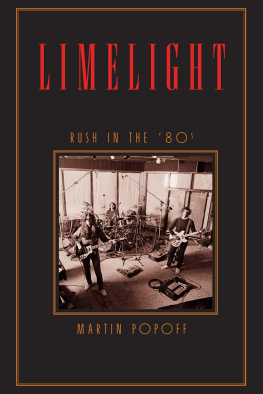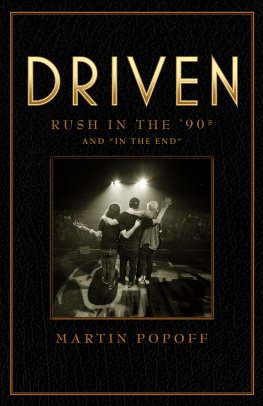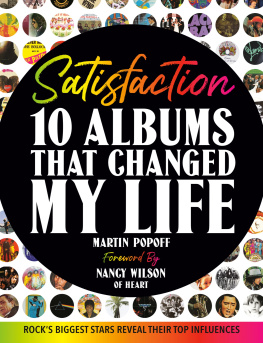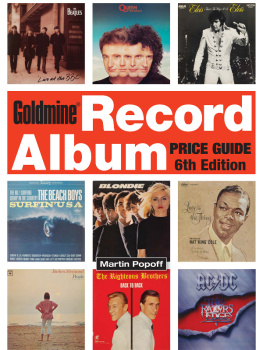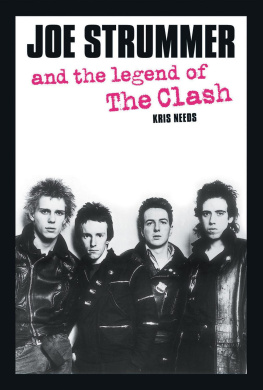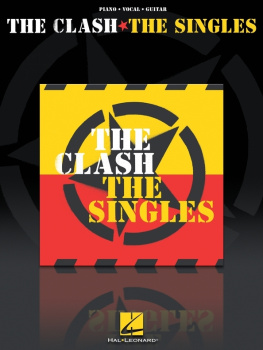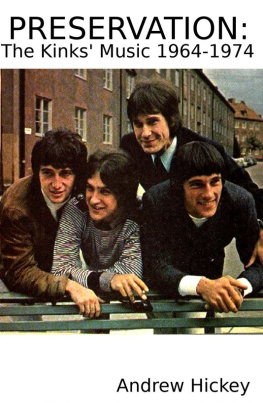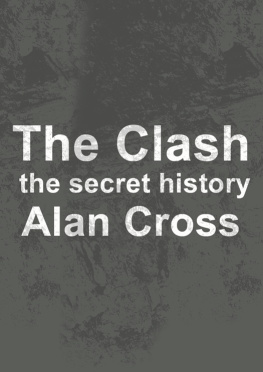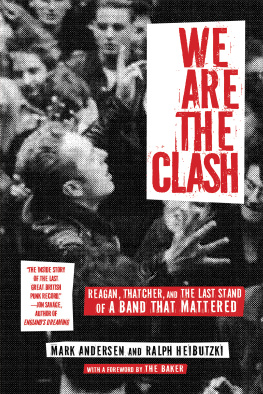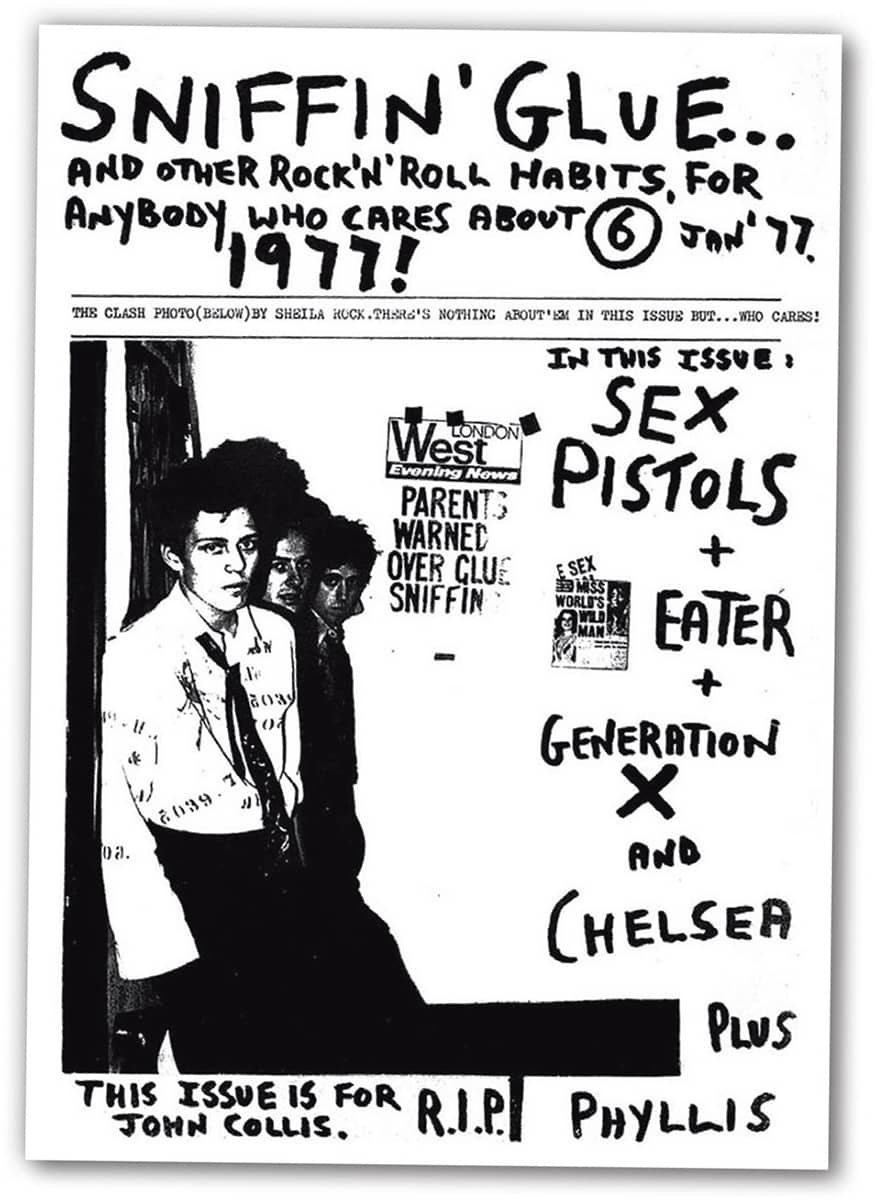INTRODUCTION
T he only band that matters they said of Joe Strummer, Mick Jones, Paul Simonon, and Topper Headon. But such solemn positioning was won the hard way (thats entertainment!), through jockeying, striving, competition, and envy. The thumping hearts at the pole position beat inside of Mick, Joe, Paul, and manager Bernie Rhodes, who rapidly conspired to create something deserving of that erudite (albeit label-generated) epithet, which, amid the rest of the contemporary punks, could alternately have framed The Clash as the adults in the room.
Indeed, The Clash rapidly landed at a place of maturityWrite about issues, Bernie admonishedbut in the beginning, it was all about the competitive energy burning inside desperate youth going for broke. And what Mick, first, and then Bernie and then Joe wanted was what the Sex Pistols had: namely, their terrible power on stage and Johnny Rottens effect on the suddenly formed stylish cult of a mob called punks.
Mick was already a punk on paper at least, having been part of the little-known, controversially named London SS, who through its brief revolving-door tenure, also included Rat Scabies and Brian James (both later of The Damned), along with theoretical bassist Paul Simonon. Mick also had going for him the same sort of quasi-hippie rock aficionado roots as Rotten and Strummer and thus a rich grounding in music that would add depth to the songs he would write.
Joe had a flash of the punk as well, through his fronting of the 101ers, a minor pub rock band about London, and his authority-questioning hippie ideals (he would come to understand that punks and longhairs were one and the same). Once Joe witnessed the Pistols, when the 101ers headlined over them at Londons Nashville Room on April 3, 1976, he saw the light, confirming his embarrassment at feeling obsolete at just twenty-four years old.
But competitive fire would put The Clash on the track to mattering. Now Mick and Bernie and Joe had an adversary in the Sex Pistols. Mick and Bernie had a second adversary in the 101ers and effectively poached Joe (scouted first by Bernie and The Clashs then second guitarist Keith Levene in May 1976), whose own burning sense of purpose already had him primed to jump ship.
A rhythm section seemed secondary to ideology. Terry Tory Crimes Chimes would appear on the bands incendiary first record but was soon replaced by Topper Headon. Paul Simonon, a South Londoner, was The Clashs Sid Vicious insomuch as he couldnt play bass, but hed bloody well figure it out. He was already halfway therehe looked the part, all menacing punk, an anti-pinup pinup in safety pins.
In addition to their rivalry with the Pistols, the band found themselves in dustups with the Stranglers (also self-conscious of age and in need of purpose), sped up by the energy of the Ramones and Buzzcocks (famously playing a gig with the latter and the Pistols), and resolute in their ambition to play live before The Damned didpoetically, the first Clash gig found them supporting the Pistols on July 4, 1976, up in Sheffield.
Joe in his 101ers days. He would come to understand hippies and punks were cut from the same cloth.
Flyer for an early gig, this one at the Royal College of Art, London, November 5, 1976.
A Sheila Rock photo appeared on a cover of the Sniffin Glue fanzine in 1977.
The next night, witnessing the Ramones play Dingwalls in London, the band reconfirmed for themselves that punk was not homegrown and that it might be better if they competed in the realm of ideas rather than trying to match the Ramones or the New York Dolls or the Sex Pistols on plowing heaviness. If Bernie, Mick, and Joe had to take on all comers, they would, through stratagem and sheer hard work, but also with their natural inclination toward punk politics.
All these considerations helped build a legend of The Clash as rude strivers, as did their signing to CBS for an advance of 100,000, an event that caused Mark Perry of Sniffin Glue magazine to poison-pen his famed quip, Punk died the day The Clash signed to CBS. Working with heavy metal man Sandy Pearlman on their second album underscored their sense of ambition and the perceived abandonment of punk that would mark the rest of the bands albums, beginning with London Calling.
But it is perhaps all of this deliberation and ambition that ultimately made The Clash great. To put it personally, even as a fourteen-year-old kid buying all those first punk albums, I could hear that inside all of the pointy, shouted tracks on The Clash a band to be taken more seriously than the Saints, the Ramones, the Dead Boys, and even on some level the Sex Pistols, who seemed comparatively garish and juvenile, from their band name and record title down to their album art and the thespian sneering over stacked power chords that nearly smothered every song into one dimension.
Later, with London Calling, The Clash opened my mind, educating methrowing an arm around me, evenand wrestling me along a path past punk and into myriad artists and albums with current-event politicking on top. When they becamelike Bruce Springsteen and later U2worthy of thoughtful mainstream press in North America (this had happened straightaway in the UK), my buddies and I already knew they deserved to be part of that conversation (we expressed our proud patronage by adding Tommy Gun and Brand New Cadillac to our hapless bar bands set list).
As the years wore on The Clash provoked further with the layered urban distortion of Combat Rock and the Mick- and Topper-less Cut the Crap (a break too far). At that point, purpose had been served, and the band imploded. Strummer, with his enthusiasm for grabbing life by the neck and shaking it, ran off and made a solo record, acted, wrote soundtracks, and finally returned renewed and even more maniacally in love with music with his band the Mescaleros. Meanwhile his ex-writing partner, Mick Jones, the sensitive voice and comparatively blissed-out presence, kept us dancing with the quite successful Big Audio Dynamite, a band that was an obvious evolution from The Clash of Combat Rock, visionary in their embrace of dance, rap, dub, electronica, and EDM.
Mick performing with his pre-Clash band, Rich Kids.
The Clash would never re-form, of course, although tantalizing vague plans were afoot in the mid-90s and again at the time of Joes death in 2002. But because it never happened, The Clashs great mythology was established to remain forever intact. In that sense (and a few others), The Clash are the Led Zeppelin of punk and arguably a grade above, even when judged by the hyperbolic only band that matters.


